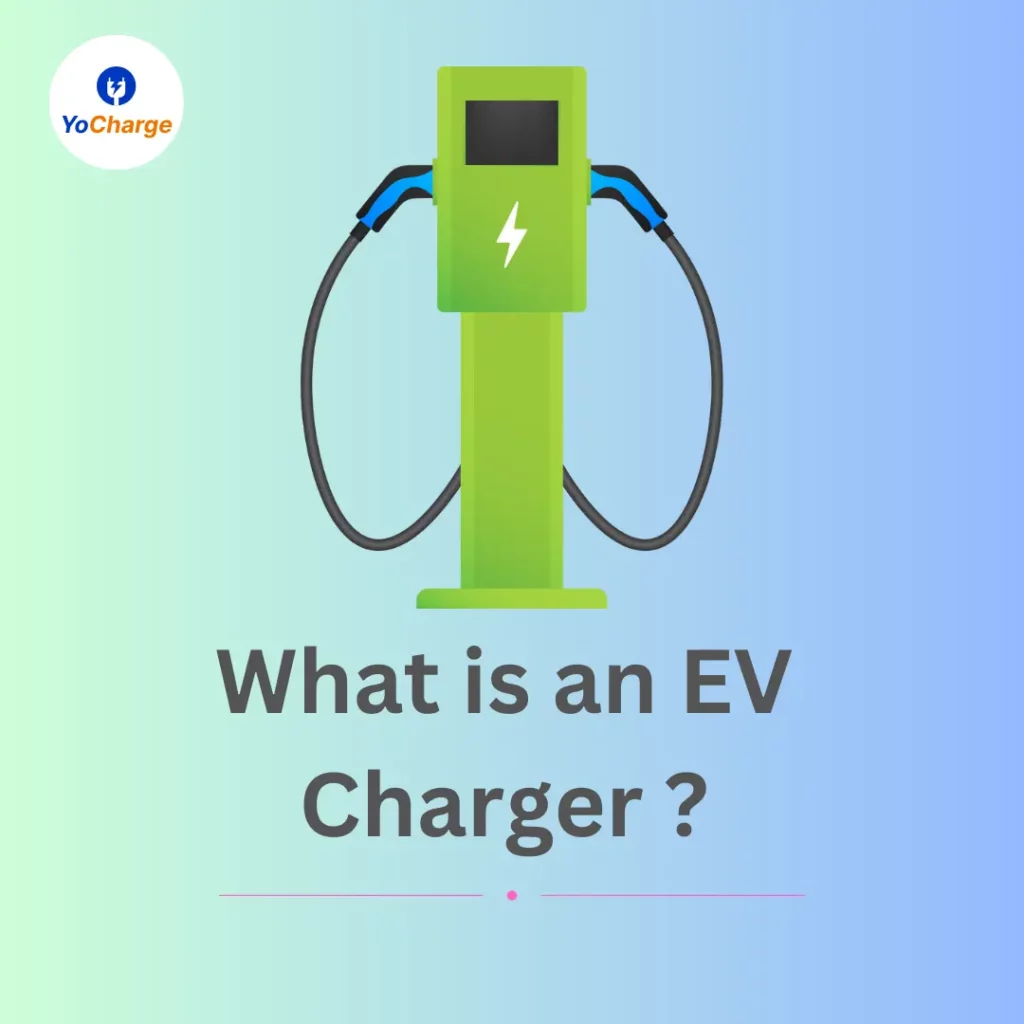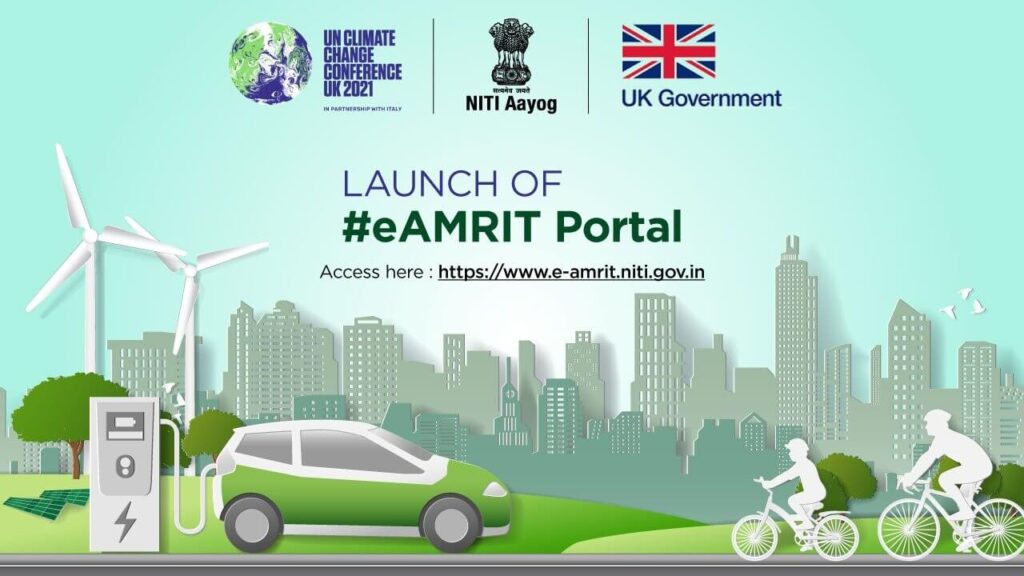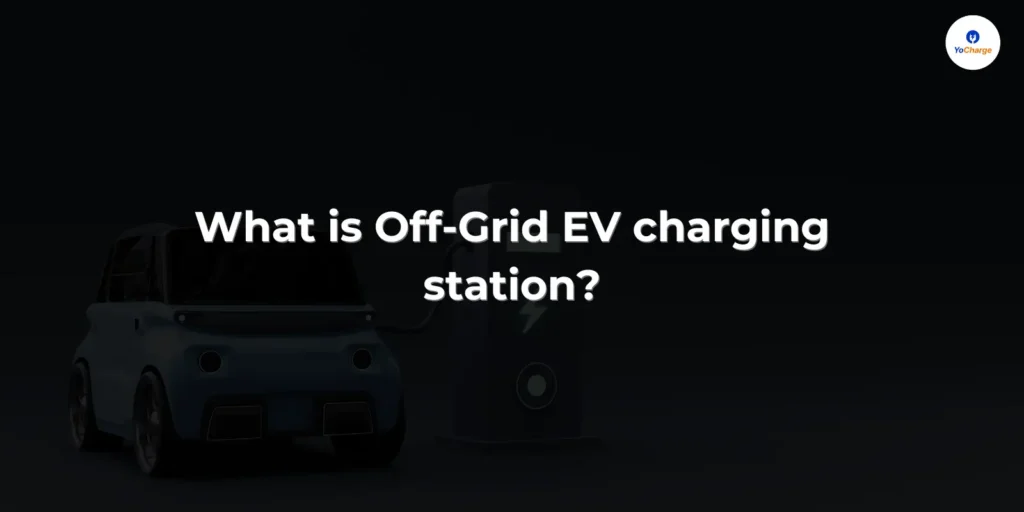
An off-grid EV charging station is a self-sufficient Power Plant with EVSE that can charge an EV without connecting to the electrical grid. It provides temporary or semi-permanent charging anywhere. Off-grid charging uses methods like solar panels, generators, and battery storage systems. These stations can be used in remote locations or urban areas for temporary or semi-permanent charging.
The global off-grid EV charging market will reach $16.6 billion by 2034, driven by rising EV demand and increasing renewable energy investments (ref). The off-grid EV charging station examples include solar charging systems with photovoltaic infrastructure & battery storage, and portable solar panel systems paired with portable power stations. It also includes a solar-powered EV charger and a canopy for remote areas and military sites.
In this article, we will learn the types of off-grid charging station, the benefits of off-grid charging station, limitations & considerations and more.
Types of Off-Grid EV Charging Station
There are several types of Off-Grid EV Charging Station such as AC Based Off-Grid Charging Station, DC Based Off-Grid Charging Station and AC & DC Based Off-Grid Charging Station. However, we will focus on Fixed Off-Grid EV Charging Station and Mobile Off-Grid EV Charging Station.
Fixed Off-Grid EV Charging Station
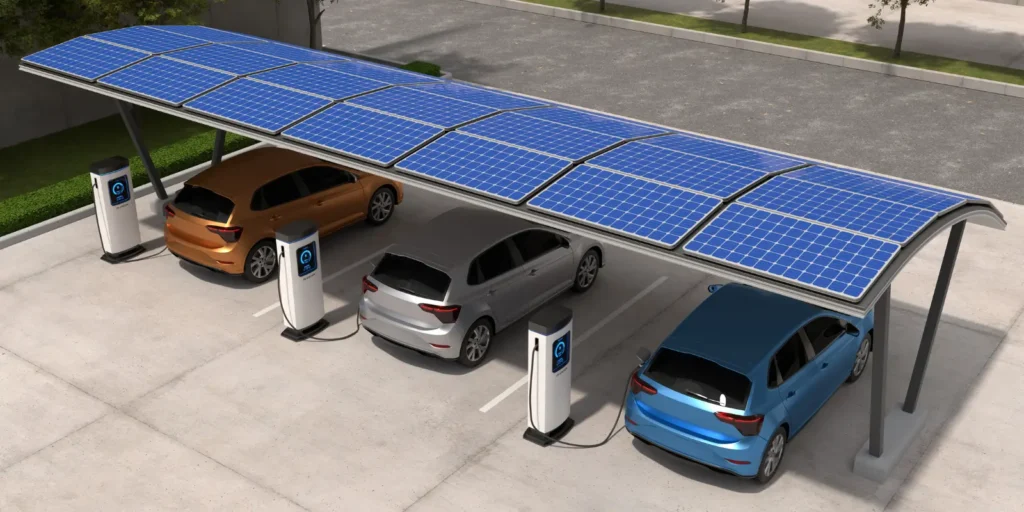
A fixed off-grid EV charging station is a standalone system that charges EVs without relying on the traditional power grid. It typically uses renewable energy sources, such as solar panels, to generate electricity and store it in batteries. This setup is ideal for locations with limited or unreliable grid access.
Many fixed off-grid stations use solar power as their primary energy source. Solar panels capture sunlight and convert it into electricity for charging EV batteries. This method is environmentally friendly and cost-effective in the long run.
Fixed off-grid stations also incorporate battery storage systems (bess) to ensure a continuous electricity supply. These batteries store excess energy generated by solar panels during the day, allowing for charging at night or during cloudy weather.
Mobile Off-Grid EV Charging Station
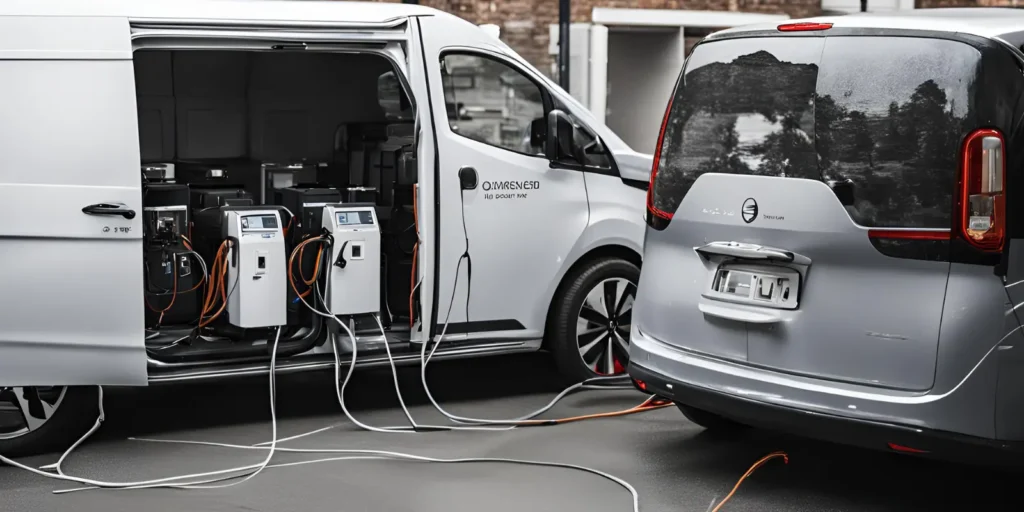
A mobile off-grid EV charging station is a portable infrastructure that charges EVs wherever they are located. These stations are useful in areas without grid access or during power outages. They can also be used for disaster relief. Mobile off-grid EV charging stations can be powered by a variety of sources, including:
- Solar and wind
- Power generators
- Biofuels or natural gas
- Hydrogen fuel cells
- Lithium batteries
Here are some examples of mobile off-grid EV charging stations:
- Mack Trucks’ Mobile Off-Grid Charging System: This system includes a generator powered by renewable propane and a 120kW charger, and is mounted on the back of an MD Electric truck.
- Mobile Modular’s Off-Grid EV Charging Solution: This self-generating station can be used in situations where infrastructure is inaccessible or during disaster relief. It also has IoT cloud reporting for remote control, monitoring, and alarm.
Benefits of Off-Grid EV Charging Station
Off-grid EV charging station offers several benefits that make them an attractive solution for sustainable and reliable electric vehicle charging. Here are some of the key advantages:
- Energy Independence: Off-grid EV charging systems reduce dependence on the utility grid, minimizing the impact of grid-related costs and potential future price fluctuations. This independence ensures that EV owners can charge their vehicles even during power outages or grid failures.
- Peace of Mind & Scalability: You can always charge your EV, even when the power is out. You can also easily scale your charging station without grid dependency.
- Environmental Sustainability: Utilizing renewable energy sources like solar power for off-grid charging helps reduce carbon emissions and preserve natural resources. By harnessing clean energy, off-grid charging stations contribute to a more sustainable future and align with global environmental goals.
- Increased Accessibility: Off-grid EV charging solutions enable the installation of EV charging stations in remote locations without grid power. This increased accessibility promotes the adoption of EVs in areas previously underserved, ensuring that all EV owners have access to reliable charging infrastructure.
- Disaster Preparedness: Off-grid charging stations are resilient and can remain available during emergencies when the grid may go offline. They provide a reliable charging solution that can be crucial in disaster situations, ensuring that EV owners can continue to use their vehicles for transportation and emergency response.
Considerations and Limitations of Off-Grid EV Charging Station
Off-grid EV charging stations offer several benefits, but they also come with some considerations and limitations. Here are some key points to consider:
Initial Investment Costs
Off-grid EV charging stations typically require higher upfront costs compared to grid-connected stations. This is because they need to include renewable energy sources, such as solar panels, and battery storage systems. While the long-term savings can be significant, the initial investment can be substantial.
Weather Dependence
Solar-powered off-grid EV charging stations rely on sunlight for energy generation. This means that they may not function optimally during periods of low sunlight or at night. This can be a limitation for areas with limited sunlight or during periods of extended cloud cover.
Battery Storage Capacity
The battery storage capacity of off-grid EV charging stations can impact the charging speed and range of EVs. Larger batteries can provide more energy storage, but they also increase the initial investment cost. Smaller batteries may not be able to fully charge larger EV batteries, which can limit their range.
Maintenance Requirements
Off-grid EV charging stations require regular maintenance to ensure optimal performance. This includes cleaning solar panels, checking battery health, and performing software updates. Neglecting maintenance can lead to reduced performance, increased downtime, and even safety risks.
Conclusion
An off-grid EV charging station is a self-sufficient power plant that charges EVs without connecting to the electrical grid. It provides temporary or semi-permanent charging anywhere using solar panels, generators, and battery storage systems. These stations can be used in remote locations or urban areas. The global off-grid EV charging market will reach $1.2 billion by 2028, driven by rising EV demand and renewable energy investments.
Types of off-grid EV charging stations include fixed and mobile systems. Fixed stations use solar panels to generate and store electricity in batteries, ideal for locations with limited grid access. Mobile stations are portable and useful in areas without grid access or during power outages. They can be powered by solar, wind, generators, biofuels, natural gas, hydrogen fuel cells, and lithium batteries. Examples include Mack Trucks’ Mobile Off-Grid Charging System and Mobile Modular’s Off-Grid EV Charging Solution.
Benefits of off-grid EV charging stations include energy independence, peace of mind, scalability, environmental sustainability, increased accessibility, and disaster preparedness. Considerations include higher initial investment costs, weather dependence, battery storage capacity, and maintenance requirements. Despite these challenges, off-grid EV charging stations offer a sustainable and reliable solution for electric vehicle charging.
